List of Contributors
Professor Randall K. Nichols (Managing Editor* / Author)
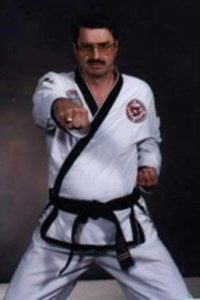
Randall K. Nichols is a Professor of Practice in Unmanned Aircraft Systems (UAS) – Cybersecurity at Kansas State University Aerospace and Technology Campus in Salina, Kansas. Nichols serves as Director, GC Space Systems and Operations (SSO) and Director, GC Aerospace Cyber Operations Programs. Nichols is internationally respected, with 53 years of experience in leadership roles in cryptography, counterintelligence, INFOSEC, and sensitive computer applications. Throughout his career, Nichols has published fifteen best-selling textbooks. Nichols has provided counsel to the United States government and is certified as a federal subject matter expert (SME) in cryptography and computer forensics. His most recent work involves creating masters and certificate graduate-level programs for KSU and Utica College. To wit:
- Author/ Developer: MS / Certificate in Aerospace Cyber Operations (ACO)
- Program Director: GC Space Systems & Operations (SSO) &
- Program Director / Author / Developer: GC Aerospace Cyber Operations (ACO)
- Retired Chair and Program Developer: MS – Cybersecurity –Intelligence and Forensics
- Retired Chair and Program Director: BS – Cybersecurity and Information Assurance
- Co-Author / Developer: MPS – Risk Assessment and Cybersecurity Policy
- Author / Developer: MS Cyber Surveillance and Warfare
Previously, Nichols was COO of INFOSEC Technologies, LLC, a consulting firm specializing in Counterterrorism, Counterespionage, and Information Security Countermeasures to support its 1700 commercial, educational, and U.S. government, clients.
Nichols served as CEO of COMSEC Solutions, a Cryptographic / Anti-virus / Biometrics Countermeasures Company, a public company acquired in 2000. He served as Vice President of Cryptography and Director of Research of the acquiring firm.
Nichols served as Technology Director of Cryptography and Biometrics for the International Computer Security Association (ICSA), President, and Vice President of the American Cryptogram Association (ACA).
Nichols holds a 3rd Dan Black Belt (R) in Moo Duc Kwan Tae Kwon Do and a permanent rank of 2nd Dan Black Belt (D). In Corpus Christi, TX, he taught self-defense courses for women. In 1994, Nichols was elevated to Ring Judge for the National Tae Kwon Do Championships held in San Antonio, TX.
Managing Editor / Co-Author UAS/CUAS/UUVS/SPACE Series:
Cyber Human Systems, Space Technologies, and Threats. (2023) Manhattan, KS: New Prairie Press #52. Available as a free book at: http://newprairiepress.org/ebooks/52/
Space Systems: Emerging Technologies and Operations. (2022) Manhattan, KS: New Prairie Press #47. Available as a free book at: http://newprairiepress.org/ebooks/47/
DRONE DELIVERY OF CBNRECy – DEW WEAPONS, Emerging Threats of Mini-Weapons of Mass Destruction and Disruption (WMDD). (2022) Manhattan, KS: New Prairie Press #46.
Available as a free eBook at: https://newprairiepress.org/ebooks/46/
Disruptive Technologies with Applications in Airline, Marine, Defense Industries (2021)
Available as a free eBook at: https://newprairiepress.org/ebooks/38/
Unmanned Vehicle Systems & Operations on Air, Sea, Land (2020)
Available as a free eBook at: https://www.newprairiepress.org/ebooks/35/
Counter Unmanned Aircraft Systems Technologies and Operations (2020)
Available as a free eBook at: https://www.newprairiepress.org/ebooks/31/
Unmanned Aircraft Systems in Cyber Domain: Protecting USA’s Advanced Air Assets, 2nd Edition (2019)
Available as a free eBook at: https://www.newprairiepress.org/ebooks/27
Barnhart, R.K., Marshall, D.M. & Shappee, E. (2021) Introduction To Unmanned Aircraft Systems, 3rd Ed, Nichols, R.K. in Chapter 18: Cybersecurity Counter Unmanned Aircraft Systems (C-UAS) and Artificial Intelligence (AI) CRC Press.
Areas of Expertise / Research Interests
- Counterterrorism / Counter- Intelligence /Counterespionage / Computer Security
- Countermeasures Asymmetric Warfare and Attack / Defense Scenarios against National Critical Infrastructure
- Computer Forensics and Cryptography SME & Federal Expert Witness (Federal Criminal Cases: Treason / Espionage)
- Risk Assessment / Threat Analysis / Vulnerabilities Analysis / Countermeasures
- Cybersecurity / Surveillance Technologies: Aerial, Infrared, Visual, Ultraviolet, Radio, Radar & Sonar
- SCADA – Advanced Cyber-weapons Creation / Deployment / Deployment / Defense
- UAS- Integrating Unmanned Aircraft Systems into National Airspace System
- CUAS – Designing advanced counter UAS systems with Stealth
- UUVs – Tracking Unmanned Underwater ISR Vehicles of hostile actors
- Designing Acoustic Countermeasures against hostile-actor UAS SWARMS & developing dual-purpose IFF sound libraries.
- Space Electronic Warfare & ECD Jamming / Spoofing Countermeasures
- Humanitarian use of Space Technologies to improve global food availability
Contact Prof. Randall K. Nichols at 717-329-9836 or profrknichols@ksu.edu.
*Direct all inquiries about this book to Prof. Randall K. Nichols at profrknichols@ksu.edu
Dr. Hans C. Mumm (Co-Author)
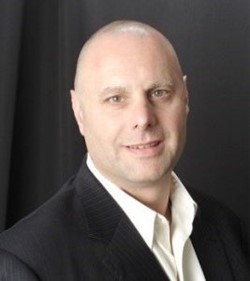
Dr. Mumm has spent a combined twenty-nine years in government and contractor service building teams to address hard problems in the areas of national security, homeland security, and advanced technologies. He was the Division Chief for Cyber Security at the Office of The Director of National Intelligence (ODNI), programming and executing a budget of over $140M. Subsequently, he accepted a Branch Chief position with the CIA and built a unique set of continuous monitoring capabilities supporting the ICD503 Risk Management Framework. His achievements include establishing a rogue wireless framework, as well as the funding, technology, and teams to support the ICD 503 initiatives. His programmatic responsibilities included the auditable financial statements of assigned programs, and the long-range planning for next-generation systems, including tracking working capital funds through the CBJB and POM submissions.
He gained notoriety during Operation Iraqi Freedom as the officer in charge of the “Iraqi Regime Playing Cards; CENTCOM’S Top 55 Most Wanted List,” which was touted by the Defense Intelligence Agency (DIA) as one the most successful Information Operations (IO) in the history of DIA. Due to combat injuries, he was medically retired through the Wounded Warrior Transition Program and was a direct hire to the ODNI. The successes of his teams live in history books, technology journals, and military museums.
Dr. Mumm is a proven leader in a diverse set of fields, including autonomous systems, post-quantum cyber security, AI/machine learning, advanced fuel systems, cognitive scientific research, and all aspects of the military intelligence communities. He has nine published books and many whitepapers and research studies to his credit in both the scientific and social science arenas. He has won grants and contracts to further test and evaluate his original research. He has notable experience in research and systems engineering, which includes winning awards and contracts for UAV research and the creation of an advanced multiple-fuel system (AI-based) where he operated the world’s first and only helicopter that flies on five separate fuels without engine modifications. His research extends into emerging and disruptive technology for offensive and defensive missions supporting US and coalition operations. His UAV and robotics expertise has focused on determining the specific uses, exceptions, and allowances for robotics operations, including studying the unintended consequences, future use, and misuse of such technologies.
Dr. Mumm holds a Doctorate of Management with a concentration in Homeland Security from Colorado Technical University (CTU), an MS in Strategic Intelligence from American Military University (AMU), and a BS in Management from Chadwick University. His military education includes dozens of in-residence strategic and tactical courses, as well as specialized intelligence disciplines, leadership, and management courses.
Dr. Mumm was entered into US Congressional Record (E1201-E1202 Sept 5, 2018) for his decades of dedication and service to the United States of America. He has earned twenty-three personal military ribbons/medals, including six military unit medals/citations and two Directors Awards from the Defense Intelligence Agency. In 2016 he was awarded the People of Distinction Humanitarian Award and granted a US Patent and Trademark for How to Harmonize the Speed of Innovation and Change with the Human Spirit’s Need for Leadership. In 2005, Dr. Mumm was recognized as one of the “Ten Outstanding Young Americans.” In 2003, he was awarded the National Defense PAC “American Patriot Ingenuity Award” for his service during “Operation Iraqi Freedom.”
Dr. Mumm is an adjunct professor at Penn West in California, Pennsylvania, instructing Homeland Security courses in the Criminal Justice Department.
He recently Co-Authored “Space Systems: Emerging Technologies and Operations” the seventh book in a series of textbooks, which includes two editions titled “Unmanned Aircraft in the Cyber Domain; Protecting USA’s Advanced Air Assets,” Drone Delivery of CBNRECy – DEW WEAPONS -Emerging Threats of Mini-Weapons of Mass Destruction and Disruption (WMDD) “Unmanned Vehicle Systems & Operations on Air, Sea, Land,” and an early 2020 book titled “Counter Unmanned Aircraft Systems Technologies and Operation.” These textbooks are a follow-up to his international best-selling book in 2017 titled “Lightning Growth” and his best-selling book in 2015 titled “Applying Complexity Leadership Theory to Drone Airspace Integration.”
Contact Information: Dr. Hans C. Mumm, 703-303-1752, hans@hansmumm.com. www.HansMumm.com
Wayne D. Lonstein, Esq. CISSP (Co-Author)

Published on June 16, 2017, on LinkedIn; ‘Identifying The Lone Wolf Using Technology,” on LinkedIn, Published on July 3, 2015; “Are Social Media Companies Using ToS And Safe Harbor To Profit From Infringement, Crime And Terror?,” Forbes.com, April 28, 2017; “Weaponizing Social Media: New Technology Brings New Threat,” Forbes.com, July 7, 2017; ‘Pay No Attention To That Man Behind The Curtain’: Technology vs. Transparency,” Forbes.com, October 17, 2017; and “Drone Technology: The Good, The Bad And The Horrible,” Forbes.com, January 10, 2018. Wayne Lonstein holds a Bachelor of Arts Degree in Political Science from Wilkes University, a Bachelor of Science Degree in Cyber Forensics, and Information Security from Syracuse University – Utica College, A Master of Science Degree in Homeland Security with a concentration in Information Security from The Pennsylvania State University and a Juris Doctor Degree from Pace University School of Law. Additionally, he holds a CISSP Certification from The Pennsylvania State University. He is a member of the state bars of New York, New Jersey, Massachusetts, and Pennsylvania, as well as being admitted to over 30 United States District Court Bars, The Court of Veterans Appeals, the United States Tax Court, and the bar of the United States Court of Appeals of the 2nd, 3rd, and 5th Circuits.
In addition, Mr. Lonstein has practiced law nationally since 1987 in technology, intellectual property, sports, and entertainment and has litigated over 2000 cases. He is also a member of the New York State Magistrates Association and has served as a Magistrate Judge in the Town of Wawarsing, New York, since 1989.
He is a member of Signal law PC, the Co-Founder, and CEO of VFT Solutions, a member of the Forbes Technology Council. He has authored numerous papers and presentations.
Dr. Julie J.C.H. Ryan, D.Sc. (Co-Author)

Julie J.C.H. Ryan, D.Sc., is the CEO of Wyndrose Technical Group, having retired from academia in 2017. Her last position in academia was Professor of Cybersecurity and Information Assurance at the U.S. National Defense University. Before that, she was tenured faculty at George Washington University and a visiting scholar at the National Institute for Standards and Technology (NIST).
Dr. Ryan came to academia from a career in an industry that began when she completed military service. Upon graduating from the U.S. Air Force Academy, Dr. Ryan served as a Signals Intelligence Officer in the Air Force and then a Military Intelligence Officer with the Defense Intelligence Agency. Upon leaving government service, she worked in various positions, including systems engineer, consultant, and senior staff scientist with Sterling Software, Booz Allen & Hamilton, Welkin Associates, and TRW/ESL, supporting various projects and clients.
She is the author /Co-Author of several books, including Defending Your Digital Assets Against Hackers, Crackers, Spies, and Thieves (McGraw Hill 2000), and a Fellow of the American Academy of Forensic Sciences (AAFS). At Wyndrose Technical Group, she focuses on futures forecasting and strategic planning, focusing on technology surprise and disruption.
Professor Candice M. Carter (Co-Author)
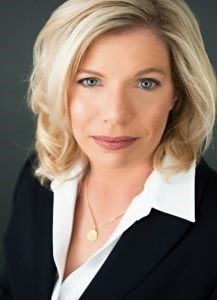
Prof. Candice Carter is a cybersecurity expert with over 15 years of hands-on experience in counterterrorism, counterintelligence, and cybercriminal investigations. She conducts Classified/Unclassified briefings in the areas of Terroristic Cyber Capabilities using Social Media and Counterterrorism for the Intelligence Community (IC). Ms. Carter conducts research and constructs Asymmetric Warfare and Attack / Defense Scenarios against National Critical Infrastructure. She is the Team Lead for NASA Aeronautics Research Institute for Transformative Vertical Flight (TVF) Commercial Intra-City On-Demand VTOL group. Ms. Carter is an invited speaker for key organizations, including BSides London and (ISC)2 Security Congress. She is an Assistant Professor/Chair MSc Cybersecurity program at Wilmington University. Ms. Carter holds an MSc in Cybersecurity Forensics and Intelligence from Utica College, Utica, NY, and a PMT Cybersecurity UAS from Kansas State University.
CPT John-Paul Hood USA (Co-Author)
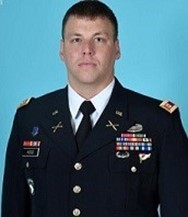
CPT John-Paul Hood is a researcher focused on developing future counter unmanned aircraft technologies, theories, and best practices for government and civilian applications. CPT Hood has commanded in the US Army Field Artillery with a background specializing in coordinating, delivering conventional/smart munitions, and achieving desired battlefield effects by integrating lethal and non-lethal assets. CPT Hood holds a BS in Geospatial Information Systems from the United States Military Academy, West Point, NY, and a Professional Masters in Technology UAS from Kansas State University.
Dr. Alysia Starkey (CEO & Dean Kansas State University Aerospace and Technologies Campus; 2nd Ed. Foreword)

Dr. Starkey is a Professor and currently serves as the CEO and Dean of the Kansas State University Aerospace and Technologies Campus. As Dean, she oversees the College of Technology and Aviation academic programs and campus research centers. Dr. Starkey holds an A.A. in Social Work from Colby Community College, a B.S. in Psychology from Fort Hays State University, an M.L.S. from the University of North Texas, and a Ph.D. in Curriculum and Instruction from Kansas State University. Joining Kansas State University Aerospace and Technologies Campus in June 2002 as a technical services/automation coordinator and assistant professor, Starkey was promoted to the library director and associate professor in 2007 and assistant dean of continuous improvement and distance education in 2010. She was named associate dean of academics and promoted to full professor in 2014. She gained the additional duties of interim CEO and Dean in June 2018 and continues in that capacity today.
Joel D. Anderson Colonel USMC (Ret), (OVPR, C-UAS Foreword, CHS & Space Technologies Foreword )
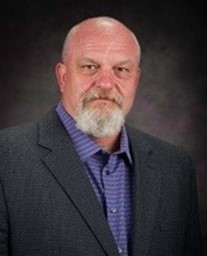
Mr. Anderson has over 30 years of experience in the military, industry, and academia. He currently serves as Development Director for Kansas State University within the Office of Research Development (ORD). Before joining KSU, he served as a Technical Director, Innovation Evangelist, and Senior Subject Matter Expert for ManTech International in support of HQMC Intelligence Department and its Tactical Exploitation of National Capabilities (TENCAP) office and Technology and Innovation Directorate; and as the Director for Mosaic ATM, Inc.’s Autonomous Systems Group. Between 1984-and 2010, he served in the United States Marine Corps, where he rose in rank from Private to Colonel. During his career, he served as an (0231) intelligence analyst while enlisted, where he was meritoriously promoted to Corporal. As an officer, he held military occupational designations as an (0202) Marine Air-Ground Task Force Intelligence Officer, (0240) Imagery Officer, (0540) Space Operations Officer, and (8058) Acquisition Professional earning DAIWIA Level III Certification as Program Manager and member of the acquisition community while PM-Marine Intelligence Systems for the Marine Corps Systems Command. He held command positions as a Surveillance and Target Acquisition Platoon Commander, Commander of the 2nd Force Imagery Interpretation Unit (FIIU), and Commanding Officer Company E. Marine Security Guard Battalion (Department of State). He served as the Marine Corps Senior Departmental Requirements Officer (DRO) and as the Imagery and Collections Section Head while serving with the Marine Corps Intelligence Activity; as the Branch Head for HQMC Intelligence Departments Imagery and Geospatial Plans and Policy Branch, and concluded his career as a Strategic Intelligence Planner for the Office of the Under Secretary of Defense for Intelligence (OUSD-I) and as the Chief of Staff for Secretary Gates Intelligence, Surveillance and Reconnaissance Task Force (ISRTF). He has served at every operational level of the Marine Corps from Battalion, Regiment, Division, Wing, MEU, and MEF; within the Marine Corps supporting establishment, HQMC, and on the OUSD-I staff. Mr. Anderson has spent a career supporting efforts to address the complexities of the intelligence community and interagency information management, decision making, talent acquisition, and educational and operational environments.
His awards include the Defense Superior Service Medal; Bronze Star; Meritorious Service Medal with four gold stars instead of the 5th award; Navy and Marine Corps Commendation Medal; Navy and Marine Corps Achievement Medal; Joint Meritorious Unit Citation; Meritorious Unit Citation; Navy Unit Citation; Marine Corps Expeditionary Medal; National Defense Medal with one device instead of the second award; Armed Forces Expeditionary Medal; Southwest Asia Service Medal with three stars instead of additional awards; Global War on Terrorism Service Medal; Sea Service Deployment Ribbon with three stars instead of additional awards; Overseas Deployment Ribbon with one device; Marine Security Guard Ribbon; Kuwaiti Liberation Medal (Saudi Arabia); Kuwaiti Liberation Medal (Kuwait).
Dr. Mark J. Jackson (Co-Author)
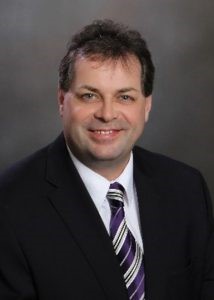
Doctor Mark James Jackson is the McCune and Middlekauff Endowed Professor and University Faculty Fellow at Kansas State University. Born in Widnes, Lancashire, England, in 1967, Doctor Jackson began his engineering career in 1983 when he studied O.N.C. part I examinations and a first-year apprenticeship-training course in mechanical engineering. After gaining an Ordinary National Diploma in Engineering with distinctions and an I.C.I. prize for achievement, he studied for a degree in mechanical and manufacturing engineering at Liverpool Polytechnic. He spent periods in the industry working for I.C.I. Pharmaceuticals, Unilever Industries, Anglo Blackwells, Unicorn International, and Saint-Gobain Corporation. After graduating with the Master of Engineering (M. Eng.) degree with Distinction under the supervision of Professor Jack Schofield, M.B.E., Doctor Jackson subsequently conducted research for the Doctor of Philosophy (Ph. D.) degree at Liverpool in the field of materials engineering focusing primarily on microstructure-property relationships in vitreous-bonded abrasive materials under the supervision of Professors Benjamin Mills and H. Peter Jost, C.B.E., Hon. F.R.Eng. Subsequently, he was employed by Unicorn Abrasives’ Central Research & Development Laboratory (Saint-Gobain Abrasives’ Group) as a materials technologist, then technical manager, responsible for product and new business development in Europe university liaison projects concerned with abrasive process development. Doctor Jackson then became a research fellow at the Cavendish Laboratory, University of Cambridge, collaborating with Professor John Field, O.B.E., F.R.S., and Professor David Tabor, F.R.S., on condensed matter physics and tribology before becoming a lecturer in engineering at the University of Liverpool in 1998. At Liverpool, he attracted several research grants to develop innovative manufacturing processes. He was jointly awarded an Innovative Manufacturing Technology Centre from the Engineering and Physical Sciences Research Council in November 2001. In 2002, he became an associate professor of mechanical engineering and faculty associate in the Centre for Manufacturing Research, Centre for Electric Power, and Centre for Water Resources and Utilization at Tennessee Technological University (an associated university of Oak Ridge National Laboratory) and a faculty associate at Oak Ridge National Laboratory. Dr. Jackson was the academic adviser to the Formula SAE Team at Tennessee Technological University. At Tennessee Technological University, Dr. Jackson established the NSF Geometric Design and Manufacturing Integration Laboratory. Dr. Jackson collaborated with Nobel Laureate Professor Sir Harold Kroto, F.R.S., editing a book on ‘Surface Engineering of Surgical Tools and Medical Devices’ and a special issue of the International Journal of Nanomanufacturing on ‘Nanofabrication of Novel Carbon Nanostructures and Nanocomposite Films.’ Dr. Jackson was appointed a member of the United Nations Education, Scientific, and Cultural Organization’s (UNESCO) International Commission for the Development of the ‘Encyclopedia of Life Support Systems’ Theme on ‘Nanoscience and Nanotechnologies’ (http://m-press.ru/English/nano/index.html), and still serves in this capacity. The encyclopedia’s first edition was published in 2009, and the second edition was published in 2018. In March 2017, the degree of Doctor of Science (D. Sc.) in mechanical engineering was conferred upon Dr. Jackson in absentia by the congregation for sustained contributions made in mechanical engineering and advanced manufacturing over twenty years.
Dr. Suzanne M. Sincavage (Co-Author)
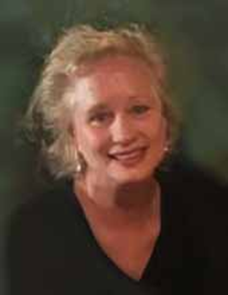
Executive Summary
On April 20, 2021, Dr. Suzanne Sincavage founded and Co-Chairs the Foundation for Biodefense Research, a non-profit 501 (c)(3) devoted and dedicated to promoting the biodefense intelligence tradecraft and developing a stronger biodefense community with government, industry, academia professional organizations, and individuals who assess, develop, and apply biodefense intelligence research to address national security challenges.
From 2020- 2021, Dr. Suzanne Sincavage served as the Executive Director for the Institute for Biodefense Research (IBR). A nonprofit devoted to advancing the science of microbial forensics.
Dr. Sincavage, a Ph.D. in public health epidemiology with a focus on biological terrorism preparedness and response, has led her consultancy, IDIQ Inc., since 2008, focusing on CBRNE Subject Matter Expertise in facilitating and integrating innovative emerging and converging technologies that counter biological terrorism.
Dr. Sincavage received her Ph.D. in Public Health and Epidemiology with a specialization in Biological Terrorism from Union Institute & University. Dr. Sincavage’s career encompasses 16 years of experience in the biotechnology and pharmaceutical industry, serving as a field scientist supporting R & D, medical and regulatory affairs, and commercial operations covering therapeutic areas of infectious disease, virology, and oncology, hematology, urology, and immunology.
Dr. Sincavage is an SME for the National Institute of Science and Technology (NIST), the National Reconnaissance Office (NRO), Intelligence and National Security Alliance (INSA), and DHS. She has held senior management positions in Watson Pharmaceuticals, Department of Medical & Regulatory Affairs; Wyeth-Ayerst Laboratories, G.D. Searle; Hoffman-La Roche Laboratories; Sacred Heart Medical Center, and for fun, served as Executive Director of the La Jolla Symphony & Chorus.
Dr. Sincavage holds certifications:
SAM (CCR); SBA 8 (m)
DD 2345 Military Critical Technical Data Agreement
DTIC STINFO Manager
Counterterrorism
InfraGuard – Infrastructure Liaison Officer
ONR – Counterterrorism
Committees:
NDIA Legislative Committee
NDIA National Small Business Conference
NRO ASP Industry Working Group
INSA Acquisition Management Council
USGIF Small Business Working Group
WOSB 8(m) Working Group, SPAWAR HQ, San Diego
Troy Harding (Foreword, WMDD; Integrated Studies Dept Head)

Troy Harding is a Professor in computer systems technology and Department Head of Integrated Studies at Kansas State University Salina Aerospace and Technology Campus. Professor Harding earned a bachelor’s degree in Chemistry and Computer Science from Bethany College and a master’s degree in Chemistry from the University of Virginia. Before joining K-State, he worked as Technical Director at Aquarian Systems in Orange, VA, Programmer/Analyst and Network Coordinator at Associated Colleges of Central Kansas, and Director of I.S. at Kansas Wesleyan University. At K-State, he has received the Marchbanks Award for Teaching Excellence, the McArthur Faculty Fellow Award, and the endowed McCune & Middlekauff Fellowship.
Dr. Robert McCreight (Co-Author)
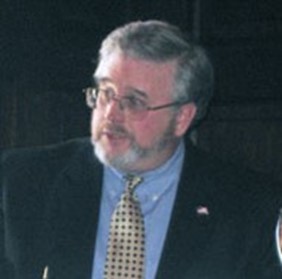
Dr. McCreight spent 27 years in federal service and 23 years concurrently in US Army Special Operations, working on various national security projects and special defense programs associated with nuclear, chemical, and biological defense matters. He has supported and served as a periodic advisor on the Chemical Weapons Treaty and Biological and Toxin Weapons Convention during a career at the State Department, along with programs enabling satellite verification of arms control treaty compliance. He helped draft HSPD-10 and contributed to the issuance of HSPD-21, also serving as a contributing White House assistant on nuclear policy and strategy exercises. Upon retirement, he has published on advanced weapons systems, WMD issues, crisis management, emergency response issues, and neuroscience topics. Periodically he has been a guest lecturer at NDU on future weapons systems and taught graduate school at seven different universities during the last 15 years in his designated areas of interest, on national security issues, CBRN matters, and emerging convergent technology threats.
William Slofer (Co-Author)
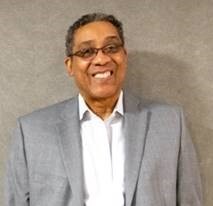
Bill is an IT Project Management and security professional with over 30 years of IT and management experience. He holds PMP, Scrum, and Scaled agile certifications with expertise in application development, systems/infrastructure integration, high-speed video/data communications, and IT security. His technical and management expertise has been employed by federal, state, and local governments and various industries in the private sector. Bill’s strong management, interpersonal, and communications skills have enabled him to lead high-impact teams nationally and in Europe, South/Central America, and Asia. Bill is a member of Infragard and has career accomplishments involving implementing corporate-wide fortifications for perimeter defense, Lateral Segmentation, and Data Loss Prevention measures to protect sensitive data assets. Bill is an SME on Hypersonic vehicles and missiles.
Formal education includes:
- MS, Cybersecurity / Cyber Terrorism
- MS, Management, Management Information Systems
BS, Business Administration / Computer Science
Lieutenant Colonel Jerry V. Drew II
Space Operations Officer, U.S. Army (Foreword SS:ET&O, Co-Author CHS & Space Technologies & Threats)
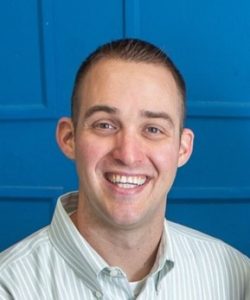
Lieutenant Colonel Jerry Drew, U.S. Army, is an instructor in the Department of Joint, Interagency, and Multinational operations at the U.S. Army Command and General Staff College. He holds a Bachelor of Science in art, philosophy, and literature from the U.S. Military Academy and a Master of Science in astronautical engineering from the Naval Postgraduate School where his thesis work focused on applied robotic manipulation using small spacecraft. Lieutenant Colonel Drew is a 2017 Art of War Scholar and a 2018 graduate of the School of Advanced Military Studies. He is currently enrolled as a PhD student in the Colorado School of Mines’ Space Resource program.
As a professional soldier, Lieutenant Colonel Drew has served in numerous operational and institutional assignments. During his time as the lead space planner for the U.S. Army Space and Missile Defense Command from 2018-2019, he served as an original member of the planning team that established U.S. Space Command and is considered a founding member of the Space Force for helping plan the new service’s creation. In addition to one science fiction novel and one poem, he has published a dozen articles and conference papers on tactics, military history, robotics, and operational art. His Co-Authored book, The Battle Beyond: How to Fight and Win the Coming War in Space, is due for publication later this year. He lives in Kansas with his wife and four children.
The Wildcat team is Honored to have LTC Drew as our Foreword writer for Space Systems: Emerging Technologies and Operations (SS:ET&O) and Co-Author on our current effort.
Max Farcot (Co-Author)
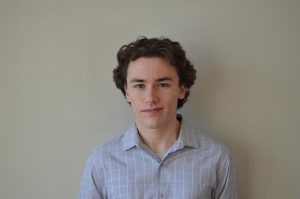
Max Farcot is a talented KSU Wildcat researcher who graduated from Kansas State University – Salina in July 2022 with Graduate Certificate in Unmanned Aircraft Systems Information Assurance. Max was appointed team leader for the important Fusion class. He led a team in assembling and presenting an elaborate briefing assessing the risks of conflict in the South China Seas. Max completed his undergraduate study at Embry-Riddle Aeronautical University, Daytona Beach, FL, graduating in Dec. 2020 with B.S. in Unmanned Aircraft Systems, minoring in UAS Safety – Summa Cum Laude. Max was a valued researcher for and contributor to the KSU textbook published in 2022: Drone Delivery of CBNRE – Direct-Energy Weapons: Emerging Threats of Mini-Weapons of Mass Destruction and Disruption (WMDD). The WMDD textbook is a required staple in the new Aerospace Cyber Operations (ACO) graduate program.
In 2019, Max Farcot worked as a UAS Crewmember, Student Operator for Service-Learning & Cooperative Education for Disaster Relief in OK & TX:
- Coordinated with Oklahoma Emergency Management Operations and Department of Wildlife Conservation efforts to survey large flooding activity, as well as tornado aftermath in Oklahoma
- Operated the Phantom IV, using Pix4D and live streaming software to collect data and imagery remotely
- Gained a deeper understanding of the operational requirements and coordination associated with UAS in support of disaster relief
- Gained experience with UAS flight crew positions, including PMC, Visual Observer, & Crew Chief roles
Max Farcot holds the following professional certifications:
FAA Remote Pilot Certificate (Part 107) December 2019
FAA Student Pilot Certificate (Part 61) July 2015
Trevor William Muehlfelder (Co-Author)
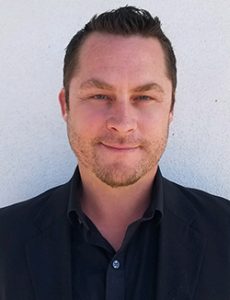
Trevor Muehlfelder is an accomplished social scientist. He currently consults for IDIQ Inc., a consulting firm devoted to advancing collaboration with government, academia, non-profits, and industry to meet critical needs. Within the company he currently advances scientific and technology standards and provides policy support within the national security and intelligence communities. In 2021, he supported the development of a unique foundry; The Foundation for Biodefence Research [501(c)3] and is currently involved in building a use inspired social-eco-impact model for technology innovation through translational and convergent research.
His educational training began at Santa Barbara City College where he received several associate degrees in different fields of study including Criminology, Psychology, and Sociology. He also attended special programs and educational training with George Mason University and attended diplomacy pursuits into China covering a broad range of issues including international relations and pending political atmospheres. Trevor completed his education at the University of California, Irvine where he excelled in courses such as Criminal Justice, Forensic Science, and Legal Research and earned his degree in Criminology, Law, and Society. There, he also received multiple honors and was integrated into several honor societies and programs.
After completing his degree, he served for several years in the Washington D.C. Metro Area as a Business Liaison and as the Director of Investigations for a legal firm. There, he gained international experience and knowledge with investigations, asset management and legal analysis. While in Washington, he also supplied critical analysis for Families of Homicide Victims and Missing Persons (FOHVAMP). He also succeeded in creating a customized mathematical formulation outlining monetary costs of psychological effects in corporate working spaces with Legacy Business Cultures.
Due to his interests in biological sciences, Trevor assisted in the development of nutraceuticals and was the Chief Operations Officer of an international nutraceutical company. There he aided in obtaining patents for nutraceutical formulations and aided in the biological research needed to develop dietary supplements.
Major Carter Diebold
Military Intelligence Officer, U.S. Army (Co-Author)

Carter Diebold is the first graduate of Kansas State University’s Aerospace Cyber Operations Graduate Certificate Program. He also holds a Master of Operational Studies degree from the U.S. Army Command and General Staff College and a Bachelor of Science in Informatics from Indiana University. Carter’s most recent research focuses on the impact of Unmanned Aircraft Systems (UAS) in the Russo-Ukrainian War and the Western Pacific as well as threats to undersea cable networks.
Carter is a career Army Officer that has served in numerous command and staff positions from the Company to Brigade levels with the 101st Airborne Division (Air Assault), 160th Special Operations Aviation Regiment (Airborne), and the 1st Multi-Domain Task Force. He is also a veteran of the Afghanistan and Iraq wars, conflict in Northwest Africa, and operations in the Indo-Pacific theater.
Carter lives in Clarksville, Tennessee, with his life partner Megan and dog Argo. He holds certifications as an FAA Remote Pilot and Bourbon Steward.
John Toebes (Co-Author)
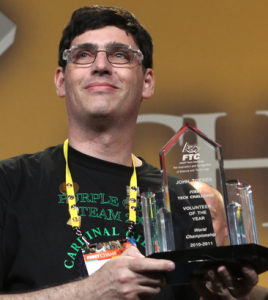
John Toebes has over 150 patents issued Worldwide in many areas including distributed computing, virtual reality, data and video compression, robotics, user experience and recommendation systems.
With over 35 years of industry experience, John has taken on many roles and responsibilities. After serving as a 2Lt in the Air Force stationed at the Pentagon, John has had leadership roles at SAS, Cisco, and Extreme Networks. At SAS, he was the founder and VP of Research and Development for SouthPeak, a SAS company. There he led development of the Video Realty™ technology and was producer for Men in Black: The Game. While at Cisco he led the development of multiple advanced technology groups. He was a leader in Cisco’s Technology Center from 1999-2006 where he personally had issued 59 patents and his team generated 100’s more to help position Cisco’s patent portfolio as top in the industry.
John went on to advance to Senior Director with the Cisco Intellectual Property team which put in place processes and tools to streamline the patenting at Cisco. Cisco achieved receiving its 10,000th US patent during John’s tenure which had dramatically ramped Cisco’s patent portfolio. Also, during this time, John was invited by Director Seema Rao of the USPTO to present at the USPTO Software Partnership meeting on the topic of prior art searching on December 5, 2013. This utilized learning from Cisco’s IP practice and enhancements that he implemented in order to improve prior art searching to eliminate bad software patents.
Most recently John is the co-founder and CTO of Escape Velocity Inc., a Triangle based technology startup focused on applying deep analytics to accelerate demand and growth for the next generation of big companies. He also serves as CTO for Gotham Studios, focusing on the Goji Geotainment® Hollywood-quality inflight experience platform.
Throughout his career, John has been an invited speaker and writer on a wide variety of topics. He was a regular C Language Columnist for The Amigan Apprentice and Journeyman, Technical Reviewer for AmigaWorld Tech Journal, writer for Transactor for the Amiga including premier issue and Assembly language optimization tricks. He was a regular speaker at American and European Amiga Developer Conferences.
He was a speaker at Game Networks conference April 27,2004 and presented the Video Reality technology at the 1997 Computer Game Developer Conference.
At the W3C Video on the Web Workshop he presented: Enabling A Richer Video Experience With Metadata – A position paper for the W3C Video on the Web Workshop 12-13 December 2007. This paper and talk was a key motivator for the W3C making Video a first-class part of the HTML5 standard. He was the keynote speaker Second IEEE International Conference on Semantic Computing, August 6, 2008, and a panel speaker “The Knowledge Worker of the Future” OOPSLA, 27 October 2009. Speaker at the NCSU ASSIST Center – Recognizing and Generating Patentable Inventions – October 31, 2013
John is passionate about STEM and has coached Robotics and Science Olympiad with his wife, Mary Ellen at Cardinal Gibbons for the past fifteen years. During that time John initiated the design for and led a geographically dispersed team to create the Samantha Wi-Fi Adapter for the Lego Mindstorms that was ultimately used by thousands of High School Robotics teams. As a result, he was awarded Volunteer of the Year in 2011 at the FIRST World Championship. He continues to serve as a Wi-Fi Technical Advisor for FIRST Tech Challenge worldwide Championship for the past 10 years.
He continues to give back, encourage, and excite the next generation of engineers. He established the Maker Space at Cardinal Gibbons to expose their students to engineering.
John also serves as the National Event Supervisor for Science Olympiad Codebusters in which students solve ciphers. In this role he has been responsible for designing the rules for competition and implementing a series of web-based tools for dynamically generating tests used in the events by over 15,000 students and coaches in all 50 states.
In 2018, as a result of John’s impact on the community and industry, John was inducted into the NCSU Computer Science Hall of Fame.
Dr. Siny Joseph (Co-Author)
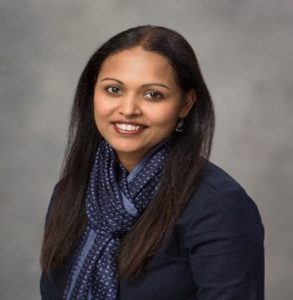
Dr. Siny Joseph is a Professor of Economics and Graduate faculty member at Kansas State University’s Aerospace and Technology Campus. She has an experience of 10 years of teaching graduate and introductory undergraduate economics courses at K-State. She has won awards for teaching excellence based on innovations in teaching pedagogy and developing open textbook materials. Dr. Joseph has a multidisciplinary background with a bachelor’s degree in electrical engineering, a Master of Business Administration degree specializing in marketing and operations research, and a master’s and PhD degree in resource economics from University of Massachusetts Amherst. Her research areas embody her multidisciplinary background with interests in the areas of agricultural trade, food policy, organic dairy and feed grain markets, mobile computing, accessible and assistive technologies, circular economy applications in space materials and integrated livestock-crop production. Dr. Joseph is active in securing grant funding both at the federal level and within K-State with proposals funded for a total of approximately $2 Million. She has been continually disseminating teaching scholarship, disciplinary and inter-disciplinary research findings through peer-reviewed academic journal articles, conference proceedings, and national/international conference presentations/posters. She plays an active role as a moderator/facilitator/panelist in academic conferences and workshops, reviewer for professional academic organizations, academic journals, and federal funding agencies such as NSF and USDA. Dr. Joseph serves as a consultant for various federal agencies funded projects. In addition, she has appeared in radio and television shows discussing various economics related topics.
Dr. Saeed Khan ( Co-Author)

Saeed Khan has a Ph.D. in Electrical Engineering. He has industrial experience in the design of antenna systems for military guidance systems, GPS systems, and wireless communication systems. Saeed has several refereed publications and conference papers in the areas of Antennas and Propagation, Radar Scattering, and Novel Materials. He has been a key player in bringing programmable logic devices and VHDL into the curriculum. Recently he has focused on developing mixed signal concepts using SIMULINK and MALAB. Saeed has multiple papers, a patent, and a patent pending in the field of wireless power Saeed Khan has a Ph.D. in Electrical Engineering. He has industrial experience in the design of antenna systems for military guidance systems, GPS systems, and wireless communication systems. Saeed has several refereed publications and conference papers in the areas of Antennas and Propagation, Radar Scattering, and Novel Materials. He has been a key player in bringing programmable logic devices and VHDL into the curriculum. Recently he has focused on developing mixed signal concepts using SIMULINK and MALAB. Saeed has multiple papers, a patent, and a patent pending in the field of wireless power transfer.
Currently focused on the Integrated Development of Automated Near-field Wireless Power Transfer (WPT) Systems using Novel Polyimide/Ferrite Nanocomposite Absorber Shields for eVTOL Aircraft. A safe Wireless Power Transfer (WPT) automated system for eVTOL aircraft can bring about improvements in turnaround time for flight operations without the need for human intervention. In support of our campus expertise in the emerging aerospace ecosystem — focused on Advanced Air Mobility (AAM) and the design of a safe, highly efficient near-field wireless power transfer (WPT) system for eVTOL.
Peter D. Johnson (Co-Author)
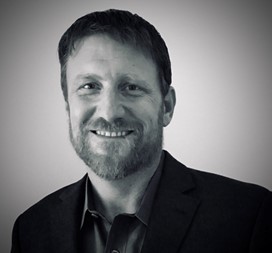
Pete Johnson is a counter-threats specialist in counter-drone operations. His current focus is Counter-UAS operations advising the DoD and Federal Law Enforcement on commercial and government off the shelf systems supporting force protection for the military, law enforcement, and critical infrastructure.
Culminating 25 years of service to our nation, retiring as a Sergeants Major from the US Army. He is a career Paratrooper and Infantryman, serving in Anti-Armor, Light, Stryker & Airborne Infantry units, Long Range Reconnaissance, and the Asymmetric Warfare Group. Joining the Army to see the world, his duty postings include North Carolina, Maryland, Hawaii, Italy and Germany with deployments supporting combat and contingency operations spanning Bosnia, Sierra Leone, Iraq, Afghanistan, the Middle East, North Africa and Eastern Europe.
Pete continues to serve and give back. Since retiring, his work continues with roles in combat advising against current and emerging asymmetric threats, the commercial CUAS industry and as a CUAS trainer. When able, he volunteers with Team Rubicon. He holds a B.S. in Strategic Studies and Defense Analysis (Summa Cum Laude) from Norwich University and is currently enrolled in the Master Graduate Certificate in Aerospace Cyber Operations from Kansas State University.
In his free time, Pete enjoys the sea and mountains of North Carolina with wife Laura, children Jillian, Christopher and Avery, their bulldog and black lab.

